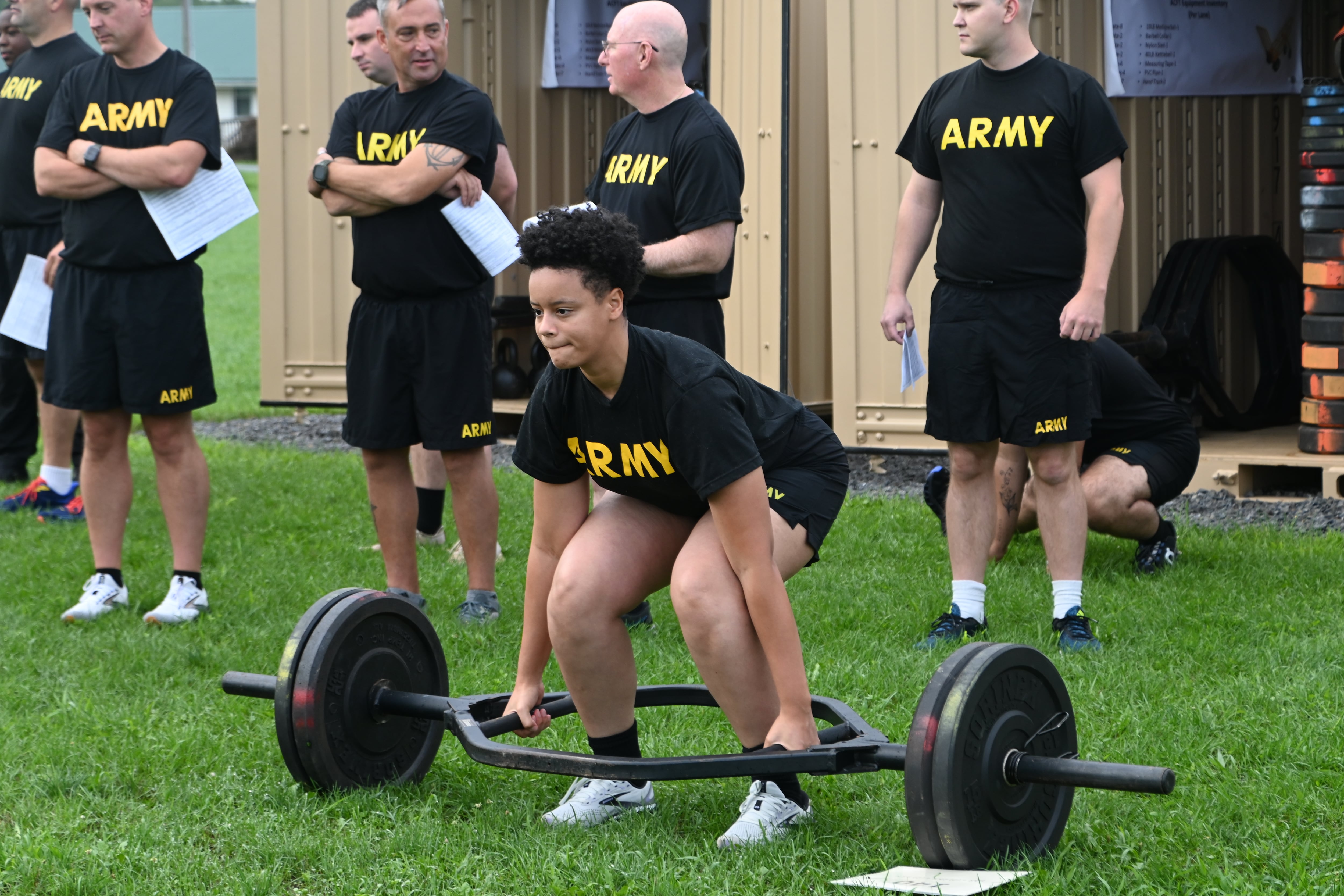Soldiers who score a 465 or better on the Army Fitness Test will not be subject to flagging actions for body fat percentage, the service decided this month.
An Army Directive distributed Sept. 4 allows for an exemption to the body fat rule for soldiers who score at least 80 points in each of the events on the fitness test: deadlifting, pushups, sprint-drag-carry, plank and a two-mile run.
Soldiers who don’t meet the body fat standard but do pass the fitness requirement will not be enrolled in the Army Body Composition Program, nor will they have to undergo a tape test, in which proctor takes a waist measurement to measure body fat circumference, the Army said. The service will still make a record of their height and weight data.
“This policy applies to Soldiers who complete all five events of the AFT; no alternative events are authorized. This body fat standard modification is not retroactive,” the directive reads.
RELATED

The directive outlines the move as an incentive to maintain physical readiness and meet standards for high levels of physical fitness.
“This is a welcome continuation of our previous policy under the former Army Combat Fitness Test,” Sgt. Maj. Christopher Stevens, a senior enlisted advisor in the Army Deputy Chief of Staff office, said in a release. “It rewards Soldiers who consistently demonstrate high levels of fitness, which supports readiness, health, and creates a culture that values performance.”
Soldiers in the regular Army, as well as activated Guard or Reserve troops, must perform the fitness test every eight months, while National Guard and Army Reserve soldiers not serving in active roles are tested annually.
The Army reconfigured its fitness test earlier this year, dropping the ball throw, making the test sex-neutral for combat arms and raising the minimum required score for 21 combat-focused jobs. Starting in June, it dropped its former designation as the Army Combat Fitness Test, becoming simply the Army Fitness Test.
Todd South has written about crime, courts, government and the military for multiple publications since 2004 and was named a 2014 Pulitzer finalist for a co-written project on witness intimidation. Todd is a Marine veteran of the Iraq War.










